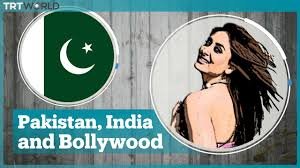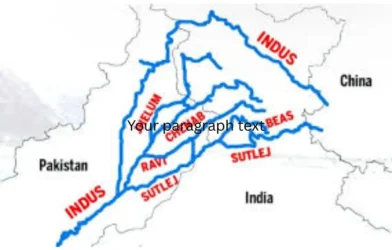Subtotal $0.00
News Today India | April 24, 2025
Bollywood, India’s cinema giant, is under fire for glorifying Pakistan and Kashmir in films like Mission Kashmir, Haider, Main Hoon Na, Shaurya, Mulk, The Diplomat, Ek Tha Tiger, Tiger Zinda Hai, and Pathaan. Despite Pakistan-backed terror attacks, like the Pahalgam attack on April 22, 2025, which killed 26 people, these movies portray Pakistan sympathetically and romanticize Kashmiri militancy, often excusing terrorism. Using specific dialogues and scenes, we expose Bollywood’s hypocrisy, ignoring India’s pain from attacks like Pahalgam. News Today India brings you the truth.
The Pahalgam Attack and Public Outrage
On April 22, 2025, Lashkar-e-Taiba and The Resistance Front, Pakistan-based terror groups, attacked Pahalgam’s Baisaran Valley, killing 26 tourists. India hit back by halting the Indus Waters Treaty, showing zero tolerance for terrorism. Public anger has also turned to Bollywood, with X posts asking, “Why does Bollywood glorify Pakistan when they sponsor attacks?” Films that soften Pakistan’s image or glorify Kashmiri militancy are facing backlash. Let’s break down how these movies fuel the controversy.
Mission Kashmir (2000): Romanticizing Terrorism
Mission Kashmir, directed by Vidhu Vinod Chopra and starring Hrithik Roshan, portrays a Kashmiri militant as a tragic figure, blurring the line between terrorism and personal pain.
- Dialogue: Hilal Kohistani (Jackie Shroff), a terrorist, says, “Kashmir ka dard meri wajah se nahi, zulm ki wajah se hai.” (Kashmir’s pain isn’t because of me, it’s because of injustice.)
- Scene: Young Altaaf (Hrithik Roshan) turns to militancy after his family is killed by Indian forces. Hilal, a Pakistan-backed terrorist, is shown as a mentor with a “cause,” not just a villain.

Criticism: By framing terrorism as a reaction to “injustice,” Mission Kashmir downplays Pakistan’s role in arming militants. The Pahalgam attack, planned by Saifullah Kasuri, shows Pakistan’s hand in Kashmir’s unrest. X users call the film “pro-terrorist,” saying it justifies violence while ignoring victims of 2008 Mumbai or Pahalgam 2025.
Haider (2014): Sympathizing with Militants
Haider, directed by Vishal Bhardwaj and starring Shahid Kapoor, adapts Hamlet to Kashmir’s conflict, portraying militants and separatists as victims of Indian oppression.
- Dialogue: Haider (Shahid Kapoor) shouts, “Hum hain ya nahi? Kashmir ko inteqam chahiye!” (Are we here or not? Kashmir needs revenge!)
- Scene: Haider joins separatists after his father’s death by Indian forces. Militants chant “Azadi,” and the Army’s AFSPA (Armed Forces Special Powers Act) is shown as brutal, with no mention of Pakistan’s terror funding.

Criticism: Haider glorifies the “Azadi” narrative, ignoring Pakistan’s support for groups like Jaish-e-Mohammed, linked to Pulwama 2019 and Pahalgam 2025. X posts slam it as “anti-Army propaganda,” accusing it of painting terrorists as freedom fighters.
Main Hoon Na (2004): Romanticizing Pakistan
Main Hoon Na, directed by Farah Khan and starring Shah Rukh Khan, pushes a “peace” narrative between India and Pakistan, ignoring terror realities.
- Dialogue: Major Ram (Shah Rukh Khan) says, “Hum dono ke dil ek tarah se dhadakte hain. Yeh sarhad kyun?” (Our hearts beat the same. Why this border?)
- Scene: Indian and Pakistani soldiers hug at the Wagah border, with Pakistani officer Khan (Murad Ali) shown as honorable. Families reunite to emotional music, erasing Pakistan’s militancy role.

Criticism: This rosy view dismisses Pakistan’s support for Lashkar-e-Taiba, behind Pahalgam 2025 (26 dead) and 2008 Mumbai (166 dead). X users call it “propaganda,” saying it softens Pakistan’s image while India mourns.
Shaurya (2008): Defaming the Indian Army
Shaurya, starring Kay Kay Menon and Rahul Bose, questions the Indian Army’s actions in Kashmir, portraying Kashmiris as victims.
- Dialogue: Siddhant (Rahul Bose) says, “Kashmir mein har Musalman terrorist nahi, lekin Army unko aisa treat karti hai.” (Not every Muslim in Kashmir is a terrorist, but the Army treats them like one.)
- Scene: Major Akash (Jaaved Jaaferi) wrongly accuses a Kashmiri Muslim, implying Army bias. The climax exposes the “mistake,” framing Kashmiris as oppressed.
Criticism: Shaurya ignores Pakistan-backed militancy, like The Resistance Front in Pahalgam 2025. X posts label it “anti-Army,” accusing it of undermining soldiers fighting Pakistan’s proxies.

Mulk (2018): Downplaying Terror Links
Mulk, directed by Anubhav Sinha, shows a Muslim family accused of terror links, subtly defending Kashmiri sentiments.
- Dialogue: Murad Ali (Rishi Kapoor) says, “Yeh desh utna hi mera hai jitna aapka. Hum terrorist nahi hain.” (This country is as much mine as yours. We’re not terrorists.)
- Scene: A Kashmiri youth, Aftab (Prateik Babbar), is wrongly accused, with the family fighting to prove patriotism. It blames society for stereotyping Muslims.

Criticism: Mulk sidesteps Pakistan’s role in radicalizing youth, as seen in Pulwama 2019 and Pahalgam 2025. X users say it “whitewashes” terror links for a liberal agenda.
The Diplomat (2024): Heroic ISI Agents
The Diplomat, starring John Abraham, portrays Pakistan’s ISI as complex, not evil.
- Dialogue: Pakistani officer Asad (Ali Fazal) says, “Hum bhi apne mulk ke liye wahi karte hain jo aap apne ke liye.” (We do for our country what you do for yours.)
- Scene: Asad helps stop a terror plot, showing ISI agents as honorable. The film ends with a handshake, symbolizing peace.

Criticism: Glorifying ISI ignores its role in 2008 Mumbai, 2016 Uri, and Pahalgam 2025. X posts call it “dangerous,” accusing Bollywood of sanitizing Pakistan’s terror sponsorship.
Ek Tha Tiger (2012) and Tiger Zinda Hai (2017): Normalizing ISI
Ek Tha Tiger and Tiger Zinda Hai, starring Salman Khan as RAW agent Tiger, portray ISI as equal to RAW.
- Dialogue (Ek Tha Tiger): Zoya (Katrina Kaif), an ISI agent, says, “Main apne mulk ke liye kaam karti hoon, tum apne ke liye. Isme galat kya hai?” (I work for my country, you for yours. What’s wrong with that?)
- Scene: Tiger and Zoya fall in love, showing ISI and RAW as “just doing their jobs.” In Tiger Zinda Hai, Tiger teams up with ISI, saying, “Dushman ka dushman dost hota hai.” (The enemy of my enemy is my friend.)

Criticism: Equating ISI with RAW dismisses Pakistan’s terror support, like Pahalgam 2025. X users call these films “anti-India,” normalizing Pakistan’s actions.
Pathaan (2023): Pakistan as Ally
Pathaan, starring Shah Rukh Khan, features Rubina (Deepika Padukone) as a heroic ISI agent.
- Dialogue: Rubina says, “Mera mulk bhi utna hi pyara hai, lekin is baar hum saath ladenge.” (My country is just as dear, but this time we fight together.)
- Scene: Rubina and Pathaan stop a rogue Indian general, portraying Pakistan as a partner, ignoring its terror links.

Criticism: Showing ISI as India’s ally distorts reality, given attacks like Pahalgam 2025. X users call it “Bollywood’s love letter to Pakistan.”
Other Films: A Clear Pattern
Films like Bajrangi Bhaijaan (2015) and Raazi (2018) continue this trend:
- Bajrangi Bhaijaan: Dialogue, “Yeh sarhad dil nahi todti.” (This border doesn’t break hearts.) It shows Pakistan as warm, ignoring militancy.
- Raazi: A Pakistani officer (Vicky Kaushal) is honorable, downplaying ISI’s anti-India role.
This pattern glorifies Pakistan and Kashmir, sidelining India’s terror struggles.
Why Does Bollywood Glorify Pakistan and Terrorism?
- Box Office Profits:
- Films with Pakistani actors like Fawad Khan (Ae Dil Hai Mushkil) or Mahira Khan (Raees) earn big in Pakistan when bans are lifted. Producers like Yash Raj Films target global markets.
- Our past talks (April 22, 2025) noted Bollywood’s cultural impact, but its profit-driven choices often ignore sensitivities.
- Liberal Narrative:
- Directors like Karan Johar and Vishal Bhardwaj push “peace” narratives, believing art transcends politics. They defend artists like Atif Aslam, saying they aren’t terrorists.
- This appeals to liberal audiences but angers those who see it as excusing terror.
- Cultural Ties:
- Shared language and culture make Pakistani actors relatable. Dramas like Humsafar are hits in India, driving demand for stars like Fawad Khan.
- Questionable Connections:
- Some Bollywood figures have ties with Pakistani elites, like Aneel Mussarat, linked to Pakistan’s military, raising suspicions.
Bollywood’s Hypocrisy: Selective Silence
Bollywood’s double standards stand out:
- Pakistani actors rarely condemn attacks like Pahalgam 2025, Pulwama 2019, or Uri 2016, but speak on global incidents.
- Stars like Shah Rukh Khan say, “Art knows no borders,” but avoid criticizing Pakistan’s terror role.
- Films glorify ISI and militants but rarely show terror victims’ pain, like Pahalgam’s 26 families.
X posts vent this frustration: “Bollywood wants peace but ignores our soldiers’ blood.” Critics like Kangana Ranaut demand Pakistani artists denounce terrorism to work in India.
Public and Political Backlash
The Pahalgam attack has reignited calls to ban Pakistani artists. MNS and Shiv Sena threaten protests, as seen in 2016 with Ae Dil Hai Mushkil. X users echo, “No Pakistan in Bollywood.” India’s halt of the Indus Waters Treaty post-Pahalgam shows a tough stance, and the public expects Bollywood to reflect this.
Bollywood’s Defense
Defenders argue:
- Art vs. Politics: Saif Ali Khan says, “Artists spread love, not war.” They believe bans don’t solve terrorism.
- Economic Losses: Bans hurt producers, as Pakistani talent draws crowds.
- Individual Talent: Fans argue actors like Mahira Khan shouldn’t be blamed for Pakistan’s actions.
The Harsh Reality
Bollywood’s narratives ignore facts:
- Pakistan’s ISI backs groups like Lashkar-e-Taiba, linked to 2008 Mumbai (166 dead), Pulwama 2019 (40 CRPF martyrs), and Pahalgam 2025 (26 dead).
- Kashmir’s militancy, fueled by Pakistan, has killed 3700 Indian soldiers since 1989 (MHA data).
- Films like Haider and Mission Kashmir justify militancy, hurting India’s sentiments.
This storytelling feels insensitive when India mourns terror victims.
What Must Change?
- Accountability: Pakistani artists must condemn attacks like Pahalgam 2025, as Anupam Kher demands.
- Honest Storytelling: Show terrorism’s reality, not glorified militants or ISI.
- Respect Victims: Honor soldiers and victims, not Pakistan’s narrative.
- Stricter Rules: Limit cross-border collaborations post-attacks to align with national sentiment.
Stay Informed with News Today India
News Today India exposes Bollywood’s troubling narratives in Mission Kashmir, Haider, Pathaan, and more. Get the latest on Pahalgam terror attack, Kashmir militancy, and India-Pakistan relations. Share this to raise awareness.








